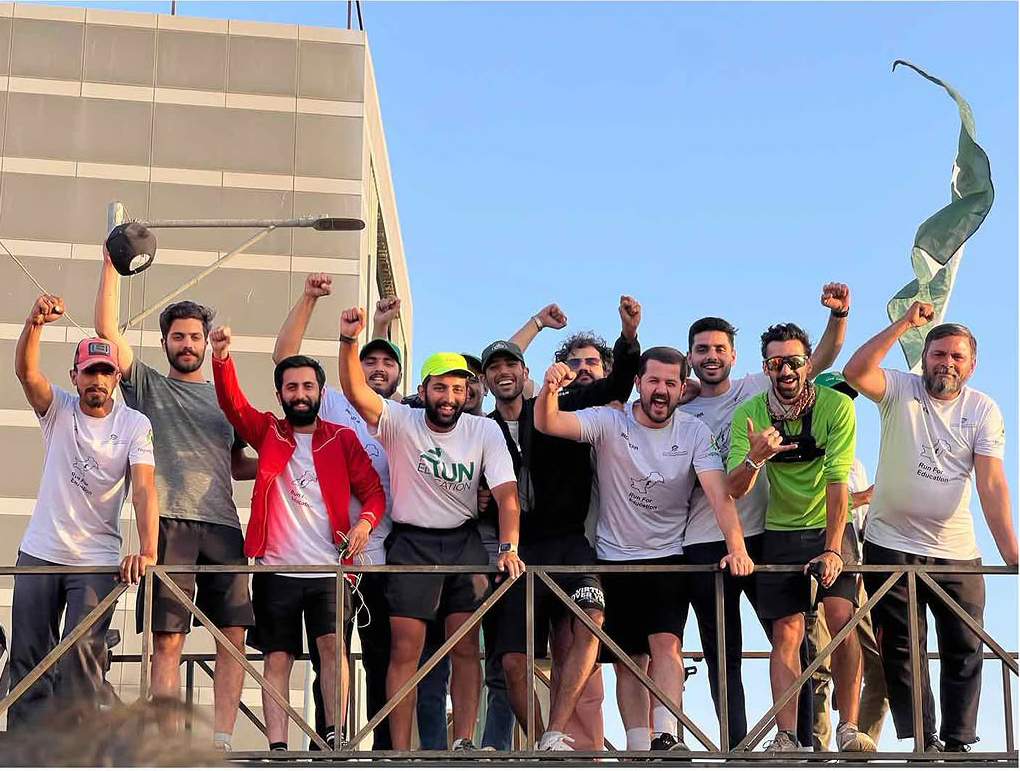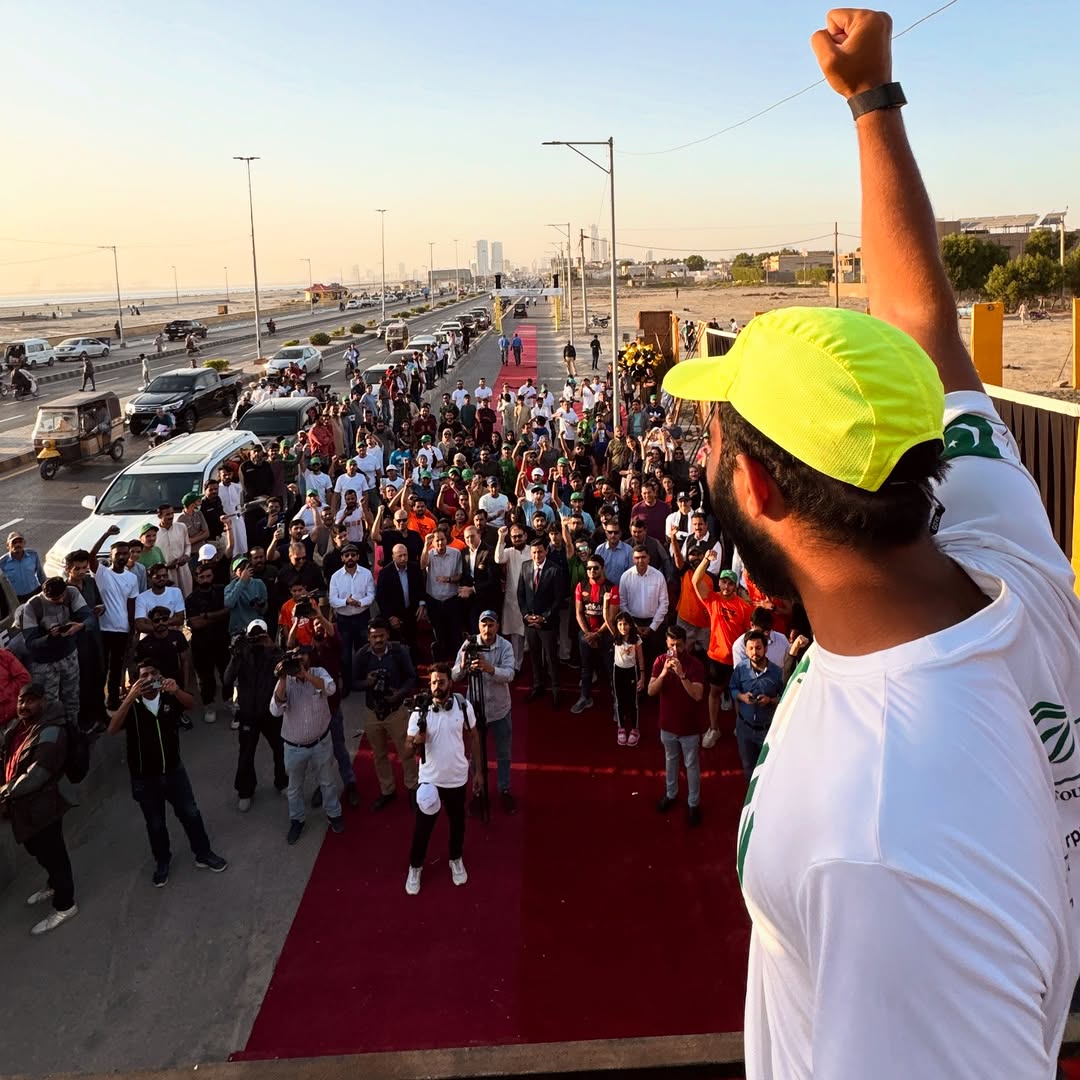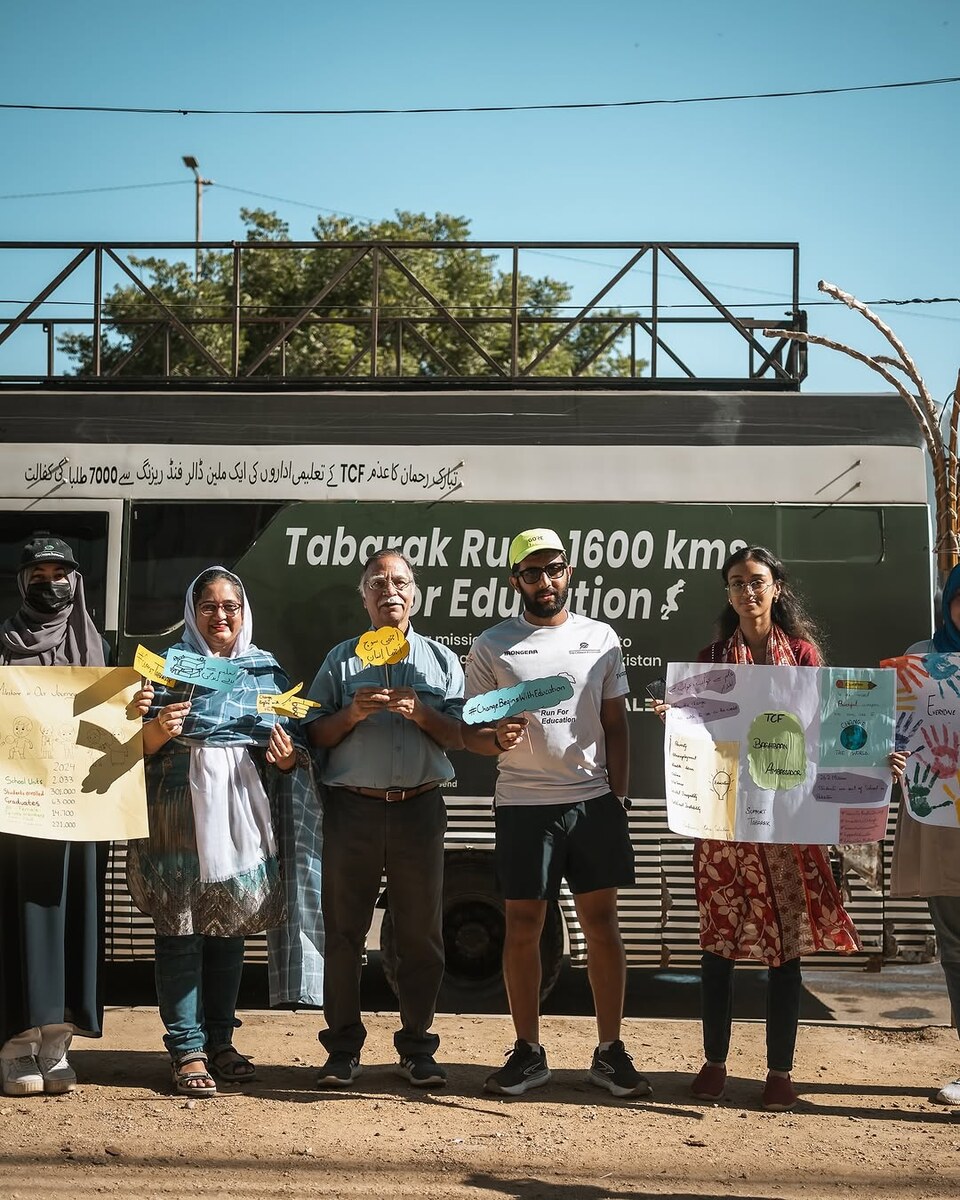KARACHI: Tabarak Rehman attended a prestigious boarding school in Pakistan, completed his undergraduate education from one of the country’s top business schools, got a master’s degree from the D’Amore-McKim School of Business at Northeastern University and then began working in New York city.
But the plight of the children of Pakistan, millions of whom can’t afford even a basic education, was never far from the mind of the 27-year-old, who currently works as a consultant at AlixPartners, an international business advisory firm known for its work in corporate turnarounds, bankruptcy assignments and restructuring.
Pakistan has the world’s second-highest number of out-of-school children at an estimated 22.8 million kids between 5 to 16 years of age, or 44 percent of the total population in this age group.
On Nov. 3, Rehman set out to play his part to make a change and started running 1,000 miles across Pakistan for The Citizens Foundation (TCF), a non-profit organization that operates a network of 1,833 low-cost schools with 280,000 students enrolled. His goal was to raise a $1 million to educate 7,000 out-of-school children in Pakistan.
“I started my journey on Nov. 3 at my high school, Cadet College Hasan Abdal,” Rehman told Arab News on Sunday after reaching Karachi, referring to the boarding school he attended in Attock district of Pakistan’s eastern Punjab province.

In this handout photograph, posted on December 8, 2024, Pakistani activist and business analyst Tabarak Rehman (5L) gestures for a group photograph with his team after a victory lap for his marathon campaign in Karachi, to raise $1 million to educate 7,000 children in Pakistan. (Photo courtesy: Instagram/tabarakruns)
“The goal was to get here to my undergraduate college, IBA [Institute of Business Administration] Karachi, to make this a symbolic journey of my own educational path so that I can make it hard for me, because it is very hard for 22 million out-of-school kids in Pakistan who never see the inside of a school.”
The activist was speaking from his third stopover in Karachi at the Mellennium Mall in the city’s Gulistan-e-Jauhar area, just 13 miles from his final destination.
“We are already 1,589 kilometers [987 miles] into our journey. So, this is already the longest distance done across Pakistan in multi-days.”

In this handout photograph, posted on December 8, 2024, Pakistani activist and business analyst Tabarak Rehman gestures after a victory lap for his marathon campaign in Karachi, to raise $1 million to educate 7,000 children in Pakistan. (Photo courtesy: Instagram/tabarakruns)
Rehman, who was not always a runner, said he prepared for six months to undertake the challenge.
“I have been averaging between 20 and 25 kilometers every day. That’s how much I was running and walking, and then, I go to the gym twice or thrice a week. I do a lot of leg strength training,” he said.
But why did he pick running over some other challenge?
“I love numbers and running is a very calculated game. You have to calculate the amount of calories you are taking in and how much running you will do every day.”
In over five weeks since the challenge began, Rehman and his team have raised $130,000 through donations from Pakistanis, both in the country and abroad, as well as from friends, colleagues and the corporate sector.

This handout photograph, posted on December 7, 2024, shows Pakistani activist and business analyst Tabarak Rehman (2R) during his marathon campaign to raise $1 million to educate 7,000 children in Pakistan. (Photo courtesy: Instagram/tabarakruns)
“We have some more pledges. Once that money kicks in, we would be close to $200,000 for this campaign. And beyond this campaign, we have pledges for up to half a million dollars,” he added, expressing gratitude for the support he had gotten from his team, which managed his food, preparations and campaign posts on social media, as well as to people from different parts of the country who joined in the run to show solidarity.
“It’s a huge success and I hope this money can create an impact on so many families [that] are going to get educated.”
The activist said he was glad to be the first person to run this distance across Pakistan to raise funds to educate underprivileged children and in the process prove that Pakistan was “a very safe country.”
“Cross country running is a tool that is used across the world to raise funds for causes,” Rehman said. “I am also paving a path for so many other athletes who are way better runners than me.”
















